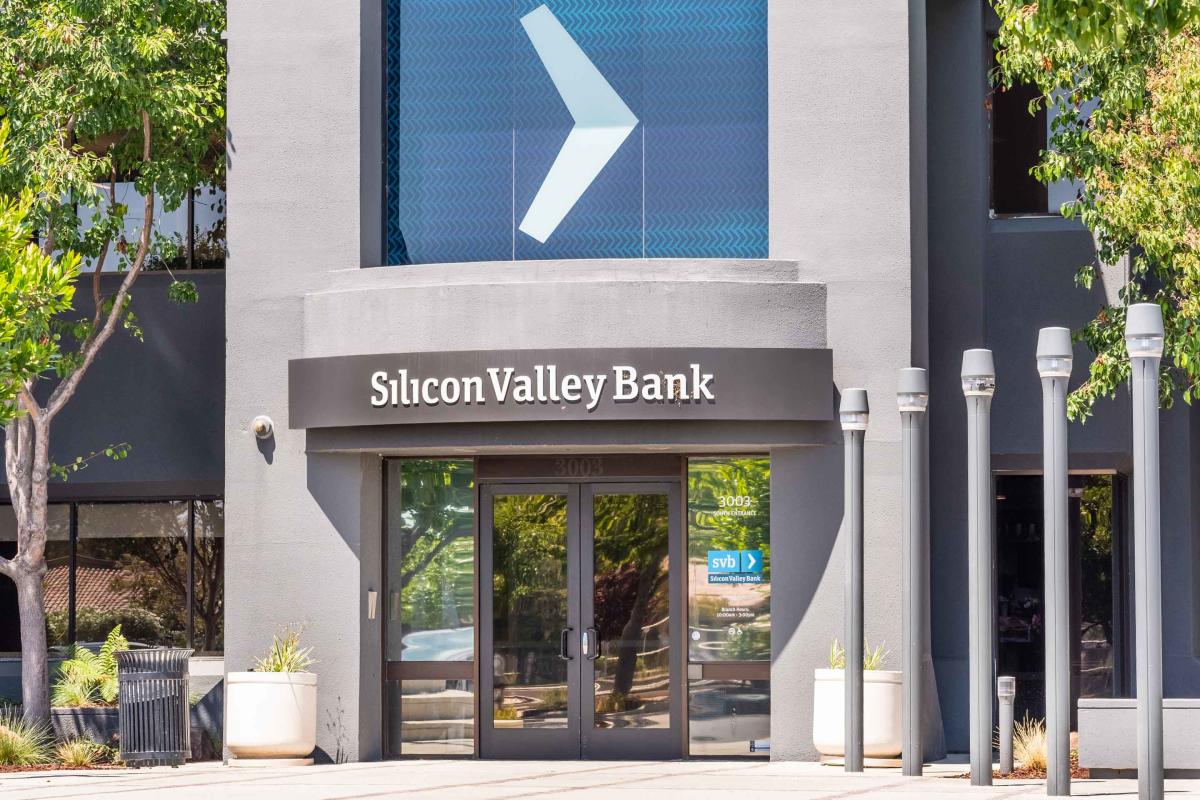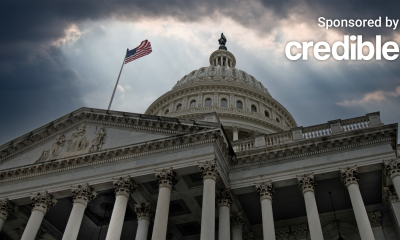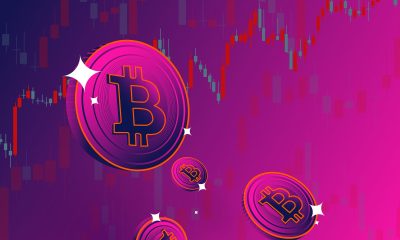Personal Finance
What the Silicon Valley Bank Collapse Means for You (Even if You Don’t Have Money There)

By now, you’ve probably at least heard about the Friday collapse of Silicon Valley Bank, the largest bank failure in the U.S. since 2008 (and the second-biggest in the nation’s history). If you’re confused about what happened — or worried about what it might mean for your money — you’re not alone.
As is often the case with financial news, the details are complicated. But in short, Silicon Valley Bank, a major lender for startups most familiar to people who work in venture capital and technology, was shut down and taken over by regulators last week. SVB had become flush with cash during the pandemic, and much of those deposits were used to buy investments typically considered safe, like Treasury bonds.
Those investments dropped in value amid the Federal Reserve’s interest rate hikes. A combination of that decline in value and depositors attempting to pull out their money as funding for startups receded meant that the bank had to sell its investments at a huge loss to cover the withdrawals.
That led to fear, which caused a scramble for more withdrawals and, eventually, the bank’s collapse. Then, on Sunday, regulators shut down Signature Bank as fear spread.
While a bank failure is scary — especially for those who remember the financial crisis of 2008 — experts say ramifications for individuals, economy and markets overall may be limited.
“The good news is that this seems to be an isolated incident, or at least a problem that may be limited to some smaller banks,” Jurrien Timmer, director of global macro at Fidelity Investments, said in a blog post. “In my view, this does not appear to be a situation that could become systemic, like the sub-prime mortgage collapse did in 2007.”
Here’s what you need to know about SVB’s failure.
Depositors are protected
To protect Americans’ money, a U.S. regulator called the Federal Deposit Insurance Corporation (or FDIC) insures customers’ funds up to a certain amount at most banks. It backs up as much as $250,000 per depositor per account type per institution in the event of a bank failure. The FDIC covers deposit accounts like checking, savings and money market accounts, but not investments like those in stocks and bonds.
One of the initial issues with Silicon Valley Bank was that the vast majority of its deposits — over 90%, by one count — were uninsured as they were over the $250,000 limit. Those customers, predictably, freaked out at the prospect of losing their money.
On Sunday, the Department of the Treasury, Federal Reserve and FDIC took emergency action and announced that all deposit accounts at both SVB and Signature Bank would be guaranteed. The regulators said depositors will have access to all their money beginning Monday and that “no losses associated with the resolution of Silicon Valley Bank will be borne by the taxpayer.” The same goes for depositors of Signature Bank.
Ideally, the move will prevent any widespread fallout from the bank’s collapse. The regulators also said they will “make available additional funding to eligible depository institutions to help assure banks have the ability to meet the needs of all their depositors.”
Your bank is probably not at risk
Companies like Roku and Roblox were holding cash at SVB, which means you’re likely hearing of ripple effects even if you’re not a Silicon Valley Bank customer yourself. For example, The Verge reported Sunday that some Etsy sellers hit snags getting their payments on time as the e-commerce company has money tied up with the bank.
But should we be worried that SVB’s collapse is a sign of trouble ahead for the banking system at large? Not necessarily.
“SVB was a unique bank that grew rapidly in a very specific niche industry, while the broader banking system is regularly stress-tested, has added meaningful liquidity and capital over the past decade, and has worked to manage balance sheets conservatively,” wrote Matt Reed, manager of the Fidelity Select Financial Services Portfolio. “While markets are likely to worry, it doesn’t look like there is meaningful spillover into the broader banking system and the economy.”
President Joe Biden spoke on TV Monday morning to assure the country that the financial system isn’t in danger.
“Americans can have confidence that the banking system is safe,” he said. “Your deposits will be there when you need them.”
Investors should stay the course
U.S. banks stocks immediately fell on Friday as the news of SVB’s collapse triggered serious concern throughout the financial industry, with some regional bank stocks logging their worst week in years.
“SVB has already caused contagion across financial services which may well be overdone — most mainstream banks probably have more diversification and less concentration in their holdings,” Aoifinn Devitt, chief investment officer at Moneta, tells Money via email. “However, it will send a chill through the stock market as it is evidence of another unknown that navigating through the current unprecedented time has created.”
But while some stocks will likely suffer in the short term, there isn’t a ton of concern at the moment for long-term investors.
“The best strategy at the moment is probably to do nothing,” Mike Bailey, director of research at FBB Capital Partners, told Bloomberg News. “If retail investors are saving money for long-term goals, then this SVB news is just a minor hiccup.”
The Fed may back off its rate hikes
Market experts quickly tried to understand what the recent events could mean for the Federal Reserve’s next actions regarding interest rates. The Fed has been hiking interest rates for about a year in an attempt to tamp down inflation, and those hikes have been weighing on the price of financial assets like stocks and bonds.
Last week, Fed Chair Jerome Powell signaled that the central bank was ready to re-accelerate the rate of rate hikes after the most recent increase was smaller than the previous few had been. But now the future is more uncertain.
In fact, analysts at Goldman Sachs said Sunday they no longer believe the Fed will hike rates at its March meeting due to SVB-related uncertainty in the financial services sector.
Not everyone is on the same page.
“While the Fed has historically cut interest rates following major negative financial events, such as a bank failure, efforts by regulators to bail out SVB depositors and provide loans to struggling banks will reduce systemic risk and enable the Fed to continue raising interest rates in an effort to keep fighting inflation,” Richard Saperstein, chief investment officer at Treasury Partners, said in written commentary shared with Money.
Of course, this is a quickly developing story, and there’s no saying exactly what the Fed will do later this month. But you can bet investors will be digesting the SVB news and attempting to forecast the central bank’s moves until the meeting.
Daily Money
Every day we publish the latest news, stories, and content on the financial topics that matter. This is your daily guide to all things personal finance.
Sign Up
More from Money:
The Best Banks in America
Why Digital Banking Is Here to Stay
Crypto Investments Are Not Protected Like Bank Accounts: New FDIC Warning
© Copyright 2023 Money Group, LLC. All Rights Reserved.
This article originally appeared on Money.com and may contain affiliate links for which Money receives compensation. Opinions expressed in this article are the author’s alone, not those of a third-party entity, and have not been reviewed, approved, or otherwise endorsed. Offers may be subject to change without notice. For more information, read Money’s full disclaimer.
Read the full article here

-

 Side Hustles6 days ago
Side Hustles6 days agoWhy the Best CEOs Think Like Anthropologists
-

 Side Hustles4 days ago
Side Hustles4 days agoThis User-Friendly H&R Block Software Package is Only $40, While Supplies Last
-

 Investing4 days ago
Investing4 days agoTikTok faces US ban deadline as users brace for fallout By Reuters
-

 Passive Income3 days ago
Passive Income3 days agoTrain for a New Tech Career in 2025 With This $25 Course Bundle
-

 Personal Finance5 days ago
Personal Finance5 days agoDecember inflation clouds Fed's outlook on interest rate cuts
-

 Personal Finance6 days ago
Personal Finance6 days agoCalifornia's homeowners insurance industry faces rough road ahead as wildfires continue
-

 Investing6 days ago
Investing6 days agoWhy Not Owning Bitcoin is Making You Poor
-

 Make Money6 days ago
Make Money6 days agoDon’t Settle: 5 Game-Changing Moves to Maximize Your Financial Advisor’s Impact


















